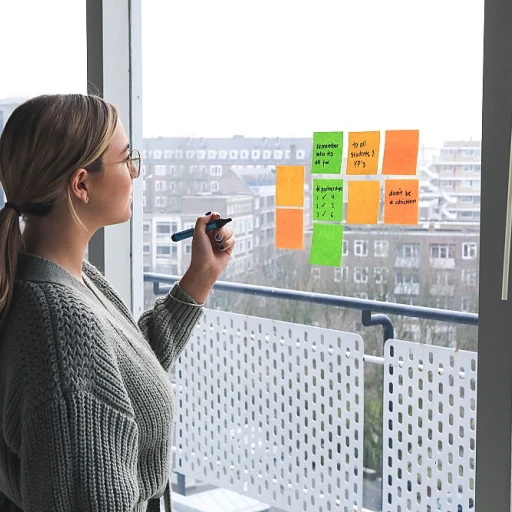
Understanding the Skills Gap
The Significance of Closing Gaps in Competency
In today's rapidly evolving workplace, addressing the mismatch between employees' current capabilities and the skills required for job performance is becoming increasingly crucial. This understanding the skills gap is essential for organizations aiming to remain competitive and innovative. As technology advances and job requirements shift, the need for continuous learning and skills development becomes a strategic priority.
Moreover, while hard skills are often the focus of training programs, soft skills come into play not only in fostering effective communication and teamwork but also in enhancing leadership abilities. These interpersonal skills, such as emotional intelligence and active listening, form the bedrock of effective team dynamics and management within any organization. Failing to adequately train and develop these abilities can lead to challenges in productivity, morale, and overall workplace efficacy.
Organizations must, therefore, identify skills gaps and implement targeted strategies to bridge them. While formal training and skills development initiatives are a staple, leveraging routine activities like staff meetings also plays a critical role in developing soft skills. Such gatherings offer regular opportunities for real-time feedback, collaborative decision-making, and team building.
As the nature of work continues to transition, proactively addressing the skills gap by fostering an environment conducive to personal and professional growth becomes an imperative objective for organizations. Harnessing both structured and informal settings will be vital. The focus should remain not only on technical abilities but also on enhancing soft skills which ultimately drive performance and satisfaction in any workplace.
The Role of Staff Meetings in Skills Development
Leveraging Meetings for Skill Enhancement
Staff meetings are more than just a routine gathering; they can be a powerful tool for skills development. When effectively managed, these meetings provide a platform for employees to enhance their soft skills, which are crucial in today’s dynamic workplace. By focusing on communication, teamwork, and leadership, meetings can transform into training programs that help bridge the skills gap.
Creating an Environment for Learning
To develop soft skills, it’s essential to create an environment where team members feel comfortable expressing their ideas and receiving feedback. This involves fostering a culture of active listening and open communication. By encouraging employees to share their thoughts, you not only improve their communication skills but also enhance their emotional intelligence and problem-solving abilities.
Encouraging Participation and Engagement
Active participation in meetings can significantly boost interpersonal skills and decision-making capabilities. Encourage team members to take on leadership roles during discussions, which can help them develop their management and time management skills. This approach not only benefits individual employees but also strengthens the overall team dynamics.
Implementing Structured Agendas
Having a structured agenda is key to making meetings more effective. It ensures that time is used efficiently and that all necessary topics are covered. This structure helps team members focus on developing specific skills, such as effective communication and teamwork. Additionally, it allows for better time management, ensuring that meetings are productive and goal-oriented.
For more insights on enhancing leadership through structured initiatives, consider exploring enhancing leadership through a manager training initiative.
Key Soft Skills to Cultivate
Essential Soft Skills to Enhance in the Workplace
In today’s rapidly evolving work environment, developing and enhancing soft skills is critical for both employees and teams to thrive. Unlike hard skills, which are more specific and technical, soft skills encompass interpersonal attributes and abilities that facilitate effective interaction and collaboration. Here are some key soft skills that organizations should focus on cultivating:- Effective Communication: The cornerstone of any successful team, effective communication skills enable team members to convey information clearly, listen actively, and build strong relationships. This skill is vital for enhancing team dynamics and ensuring that everyone is on the same page.
- Emotional Intelligence: Recognizing and understanding one’s emotions and those of others can significantly enhance workplace interactions. Emotional intelligence contributes to better decision making and management, promoting a more harmonious work environment.
- Problem Solving: The ability to tackle challenges with a solution-oriented mindset is invaluable. Team members skilled in problem solving can navigate obstacles efficiently, turning potential roadblocks into opportunities for growth.
- Team Building and Interpersonal Skills: Fostering a cooperative team spirit and maintaining positive relationships are essential for a cohesive work environment. Strong interpersonal skills aid in team building and promote a culture of trust and mutual respect.
- Time Management: Efficient time management is crucial for productivity and allows team members to prioritize tasks, reduce stress, and meet deadlines effectively. This skill ensures that projects are completed on time and with high quality.
- Leadership Abilities: Leadership isn't just for managers – every team member can benefit from honing leadership skills such as motivation, guidance, and decision making. These skills help individuals take initiative and inspire others toward common goals.
Practical Strategies for Effective Meetings
Facilitating Productive Meetings
Creating effective meetings requires attention to various aspects of communication and management. Here are some strategies that can significantly enhance the meeting experience, improving the team’s ability to develop and refine soft skills effectively:- Clear Objectives: Define the purpose of the meeting beforehand. Knowing the goals helps employees focus on specific areas of skills development such as decision making and problem solving.
- Inclusive Participation: Encourage all team members to take part in discussions. This participation enhances interpersonal skills and fosters a collaborative team dynamic.
- Time Management: Respect everyone’s time by setting and sticking to a schedule. This fosters a culture of punctuality and respect, critical components of effective communication and time management skills.
- Active Listening: Emphasize the importance of listening as much as speaking during meetings. Active listening strengthens understanding and improves communication skills within the workplace.
- Feedback Mechanisms: Implement a system for providing and receiving feedback constructively. Constructive feedback is essential for developing soft skills and enhancing emotional intelligence.
- Utilizing Technology: Leverage digital tools for virtual meetings to maintain effective communication and team building in diverse working environments.
- Problem-Solving Activities: Integrate exercises that promote critical thinking and problem-solving skills. These activities are instrumental in refining the ability of team members to address challenges effectively.
Overcoming Challenges in Skills Development
Addressing Barriers to Skills Development
In the journey of skills training within the workplace, teams often encounter several hurdles that can impede soft skill cultivation and effective learning. Understanding and addressing these challenges is paramount to ensuring skills development is not just a goal but an achievable reality. Lack of Time and Resources Time and resource constraints are among the most common obstacles faced by team members. Employees often juggle multiple responsibilities, leaving little room for additional training. To overcome this, management should prioritize time management strategies, streamline tasks, and allocate specific periods dedicated to soft skills training without compromising productivity. Cultural Resistance Cultural resistance can manifest when team members are accustomed to existing communication patterns and interpersonal skills practices. Change can be seen as a disruptive force, leading to reluctance in adopting new strategies. Cultivating a culture of openness and encouraging feedback are crucial steps in challenging this mindset and fostering an environment conducive to growth. Measuring Skill Improvement Quantifying the development of soft skills can be tricky, as they aren't as easily measurable as hard skills. However, implementing feedback mechanisms and monitoring progress through regular assessments can help address this challenge. Recognizing improvements in emotional intelligence, decision making, and problem solving should be celebrated to motivate continued development. Engaging Employees in Learning Maintaining high levels of engagement in skills development can be challenging, particularly if the training lacks relevance or engaging delivery methods. To combat this, managers should leverage interactive training programs that incorporate active listening and effective communication exercises. Providing real-world problem-solving scenarios can also enhance the learning experience and underscore the practical benefits of developing soft skills. By strategically addressing these challenges, teams can effectively create a thriving culture of continuous improvement in both personal and professional skills development.Measuring Success and Continuous Improvement
Evaluating Progress and Ensuring Ongoing Advancement
Measuring the success of soft skills development programs within a team can be challenging, particularly as these skills are inherently more subjective compared to hard skills. However, it's crucial to institute a methodical approach for evaluation.- Set Clear Objectives: To assess progress effectively, begin by establishing clear objectives for what the soft skills training should achieve. Including measurable aspects, such as improved communication or better team dynamics, can provide tangible benchmarks.
- Feedback Mechanisms: Regular feedback from team members and leadership can highlight areas of improvement. Encourage a culture of open communication where constructive criticism is welcomed. This aligns with active listening and effective communication skills cultivated during staff meetings.
- Peer Reviews: Implementing peer reviews can provide insights into how employees perceive each other's soft skills development. These evaluations can help identify gaps and areas requiring additional focus or training.
- Self-Assessment: Encourage employees to engage in self-assessment, allowing them to self-reflect on their progress in developing soft skills like problem solving or emotional intelligence. This introspective practice can motivate personal growth and highlight individual learning patterns.
- Tracking Improvements: Develop a system to track improvements in team dynamics and performance over time. Metrics related to team collaboration and project outcomes can be indirect indicators of enhanced soft skill development.
- Continuous Adaptation: Soft skills training programs should evolve based on the collected data. As the workplace environment and team needs change, so should the approaches to skill development. This ensures that the training remains relevant and effective in fostering skills crucial for team success.













